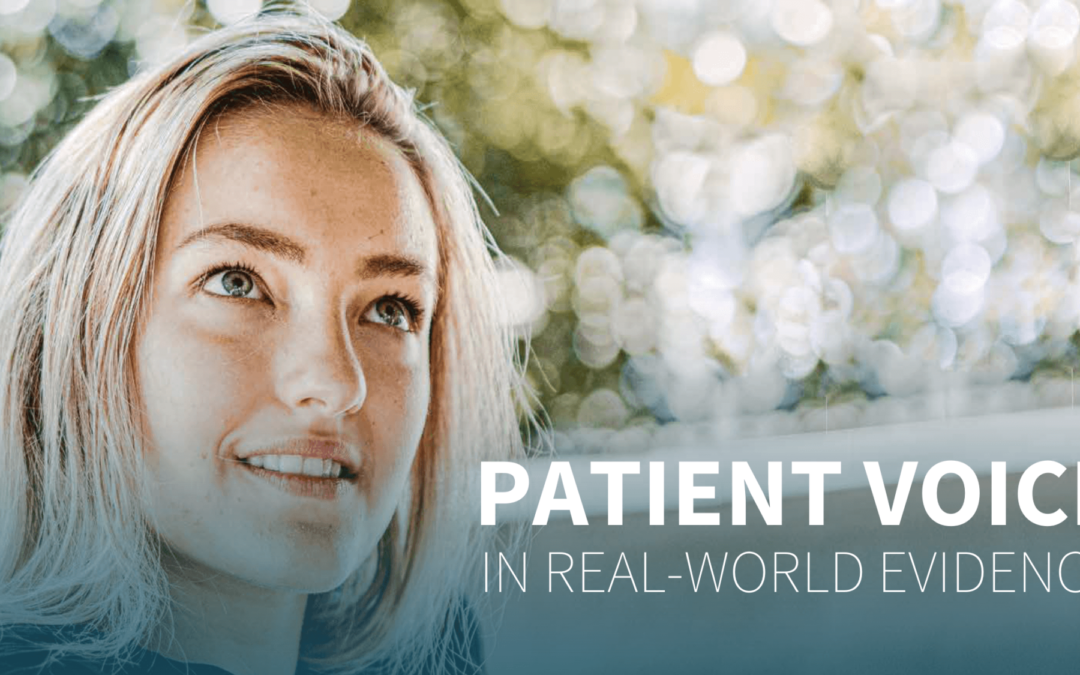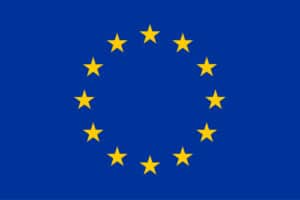With the rise of patient-centered medicine and accelerated approvals, health technology assessment (HTA) bodies and payers are looking to real-world evidence (RWE) to strengthen evidence packages and reduce uncertainties at the time of launch.
Increasingly, stakeholders are recognizing the importance of RWE that incorporates patients’ real-world experiences in understanding what treatments work, and for whom, in clinical practice.
Real-world evidence is generated through applying data science to real-world data (RWD), or data “relating to patient health status or the delivery of healthcare routinely collected from EHRs, claims, registries, patient-reported outcomes, devices/applications, etc.” Decision-makers are exploring how this evidence can supplement clinical trials and provide additional context on the effectiveness of therapies.
There is some overlap between patient experience data, which provides information about a patient’s experience with a disease or condition, and real-world data (RWD), however, they are not one and the same. For example, patient-reported outcomes (PROs) collected in an electronic health record (EHR) would be considered both RWD and patient experience data, however, lab test results in the medical record would be considered only RWD. As personalized medicine continues to gain traction, decision-makers like ICER, FDA, NPC, EMA, EUNetHTA, and EHDEN are calling for patients’ voices to be included in the drug development and assessment process. Such information – direct input from patients on how they feel and function is often lacking from RWD sources, and FDA and EMA identified such missing data as problematic for interpretation.
We spoke with Ashley Jaksa MPH, Scientific Partnerships Lead, Aetion and Chung Yen Looi, DPhil Partnerships Director, Monsenso, about the evolving landscape of patient experience data and how biopharma organizations can incorporate the patient voice into their RWD and RWE programs.
Q: Ashley, can you tell our readers a little more about what Aetion does?
AJ: Aetion is a healthcare technology company that uses routinely collected health care data to generate RWE on the safety and effectiveness of medical treatments and technologies. We were founded by Harvard epidemiologists to develop a way to conduct scalable and transparent RWD analyses at the highest level of scientific rigour. Our RWE analytics platform helps biopharma organizations, regulators, HTAs, payers, and other researchers generate RWE to inform decisions on the safety, effectiveness, and value of medical interventions across the product lifecycle. Our platform is data fluent, meaning it can analyze almost any type of RWD, and we often work with our customers and partners to identify the most fit-for-purpose data set for their research question.
Q: Why is the patient experience important for biopharma to understand, and where in the drug development lifecycle is it most important to integrate patients’ voices?
CL: I think we can all agree that pharma and its stakeholders want to develop safe and effective drugs and bring them to market, to improve patients’ lives. As such, asking patients directly about how a drug impacts their lives is critical. Without the patient voice, we will never know how patients experience therapies in the real world, and how medical interventions could make a meaningful difference to their lives. Capturing and incorporating the patient voice across the product lifecycle can help biopharma companies to better understand the real-world impact of their drug, treatment responders, and meaningful endpoints based on a wider, representative population, in a quick and cost-effective way.
AJ: Similar to RWE, patient experience data is important in almost all stages of the product lifecycle—not just as a post-marketing exercise. For example, understanding the treatment pathways and patient experiences on first-line therapies can help shape what comparators and outcomes should be captured in future randomized controlled trials to differentiate the drug in the market.
Q: How can incorporating the patient voice improve market access?
CL: Patient voice is a powerful way to demonstrate the impact of a drug on patients’ quality of life to payers and HTA bodies, particularly for cost-effectiveness evaluations. Some biopharma organizations have used PRO measures on daily functioning and health-related quality of life as their primary and secondary endpoints in clinical and real-world studies, while others have directly linked PROs to their drug reimbursement contracts. Patient voice contributions can help biopharma companies differentiate their product from similar drugs for coverage, especially for payers who are tying reimbursement to the value to patients based on outcomes and have longer-term responsibilities for their populations. Some of the common myths are that “payers don’t care about PRO evidence, PROs only matter if they make it to the label, and that PROs should only be collected in Phase IV.” The facts are that not all payers are alike. Some pay a lot of attention to PRO evidence. Payers will consider all data from pivotal trials, whether or not it is on the package insert, and coverage decisions will be made on pivotal trials, so waiting until Phase IV to collect PROs would be too late.
Q: What are the common barriers in generating high-quality, patient-centric RWE?
AJ: I think the common barriers to generating RWE and patient-centric RWE are very similar; researchers must ensure that the data exists, that the data is capturing the relevant underlying medical concept, and that it is generated in a way that limits bias and confounding. Traditional RWD sources, like claims and EHRs, often have limited patient-centric data. This is a challenge for researchers attempting to incorporate this information into their studies. However, groups like Friends of Cancer Research and data providers like Monsenso are working to ensure this information is being collected. Once it is collected, it is essential to validate that these data and algorithms are actually measuring what we are intending to measure. Finally, researchers must be cognizant of bias and confounding and control for this as much as possible through study design and analytic methods.
CL: Adding to Ashley’s points, I think data privacy and security, patients’ burden of contributing to research, and standardized methodology to analysis and interpretation are common barriers. It may seem like a no-brainer to ensure that patient data is managed in a secure way, but a recent study showed that almost a third of health apps out there collect patient data without privacy policy, and about one in five data transmissions occurred on insecure communication protocols. Furthermore, as patients are already suffering from their disease or conditions, contributing to research could add to their burden, which is why data capture platforms should be designed in a way that is easy-to-use and that provides valuable insights to patients. Finally, there is a lack of standardization in analysis and interpretation—which is why companies like Aetion are important to ensure that critical questions are answered, data sets are relevant, and standards are followed to derive and present meaningful insights that will inform decision-making.
Q: How can biopharma generate high-quality, patient-centric RWE for decision-makers?
AJ: In addition to addressing the common barriers mentioned above, we think it is important to follow a principled approach to study design and execution. The main reasons why decision-makers like regulators and HTAs/payers dismiss RWE are due to deficient data selection and insufficient methodology. Following principled epidemiologic methods of selecting fit-for-purpose data, avoiding common methodological mistakes, and ensuring the protocol and results are clearly communicated are essential to ensuring the decision-makers trust the evidence. This planning and execution of RWE studies is not easy; it takes forethought. Biopharma manufacturers should be considering RWE at every stage of the product lifecycle, and proactively planning for how RWE studies will be incorporated into each product’s launch.
Q. What is the cost-benefit for biopharma of generating patient-centric RWE?
CL: Relative to the costs of bringing a new drug to market – which could go up to billions of dollars and take over a decade, with limited success rates – the costs associated with collecting patient-centric RWE is insignificant. In return, patient-centric evidence could provide significant savings and valuable insights as early as possible to ensure that new drugs are truly driven by patients’ unmet needs, that they impact outcomes that matter to patients, and, ultimately, that they have the greatest chance of reaching the market and making a meaningful difference to patients.
AJ: RWE can provide value for biopharma organizations across the product lifecycle—from eliminating costs typically incurred during clinical trials to accelerating time to market. Using a validated RWE platform can take this a step further, allowing companies to run more efficient, credible studies and reach insights faster than they could with traditional line programming. By ensuring patient-centric outcomes are collected in clinical data sources, then incorporating patient-centric RWE across drug development and commercialization programs, biopharma organizations can unlock insights that deliver value not only for their company but for patients as well.
Q: Lastly, for our readers who are not familiar with Monsenso, Looi can you kindly tell a little more about what Monsenso does?
CL: of course, Monsenso is a digital health company that enables patient-centric care and research. We’re a spinout from the IT University of Copenhagen based on the groundbreaking research of Professor Lars Kessing and Dr. Mads Frost on bipolar disorder and depression. We were founded in 2013 and have been listed on Nasdaq First North in Denmark since 2020. Our solution enables pharma companies to collect self-reported and device-generated data directly from patients in a simple, scalable, secure, and cost-effective way. Our cloud-based platform connects patients and investigators via an app and a web portal, respectively, to collect data in real-time across clinical development, post-market studies, and clinical practice to inform decision-making. Our platform can integrate with wearable devices and sensors, and combine with other RWD sources to provide a more holistic view of the impact of a drug on patients’ lives.




